Cargando...
Recursos educativos
-
Nivel educativo
-
Competencias
-
Tipología
-
Idioma
-
Tipo de medio
-
Tipo de actividad
-
Destinatarios
-
Tipo de audiencia
-
Creador
Lo más buscado
- El Egipto faraónico
- Simetría axial
- actividades ortografía
- Lagos de Colombia
- Actividades de geometría en séptimo
- Competencias básicas
- ejercicios ortografía
- Juegos matemáticos
- Área del círculo
- Actividades educativas para niños en Prejardín
- Experimentos de anatomía
- Altura y duración del sonido
- Experimentos sociales
- Julio Cesar
- El gran dictador
-
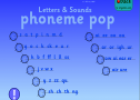
Letters & Sounds: Phoneme Pop
Tiching explorer Organización
- 2468 visitas
Resource designed to support phoneme recognition. Sound groups taken from 'Letters and Sounds', e.g. sets 1 & 2 "s, a, t, p, i, n, m, d".
-
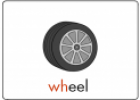
Phonics (flashcards)
Kiz club Organización
- 3750 visitas
Collection of printable flashcards (PDF). They will help in teaching sounds. There is a printable set for each phoneme.
-
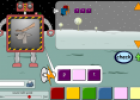
-
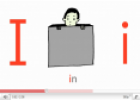
Video: Phonics Chant
Tiching explorer Organización
- 3325 visitas
The resource consists of a listen and repeat video. Each letter name is given, followed by its phoneme, followed by an anchor word. We review the English alphabet and the sound of each letter.
-
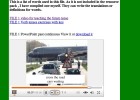
Lesson plan: New English File Intermediate Unit 1
Tiching explorer Organización
- 3 lo usan
- 4013 visitas
This page organizes the contents of the book into lists, vocabulary banks and presentations. This first unit is about past continuous, the /u:/ phoneme, the difference between static and dynamic verbs…
-
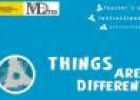
Things are different: Differences
INTEF Organización
- 3269 visitas
Activity designed to help us practice gramar (comparatives and superlatives, order of adjectives in the sentence) and vocabulary (patterns, clothes and materials). We practice describing clothes, asking…
-

Video about Used To vs Simple Past and polite requests
British Council Organización
- 3 lo usan
- 6218 visitas
After watching "Blackpool Scene 2" (from the "Word on the Street" series), in this video we learn the difference between simple past and "used to". For the latter, we also…
Te estamos redirigiendo a la ficha del libro...










